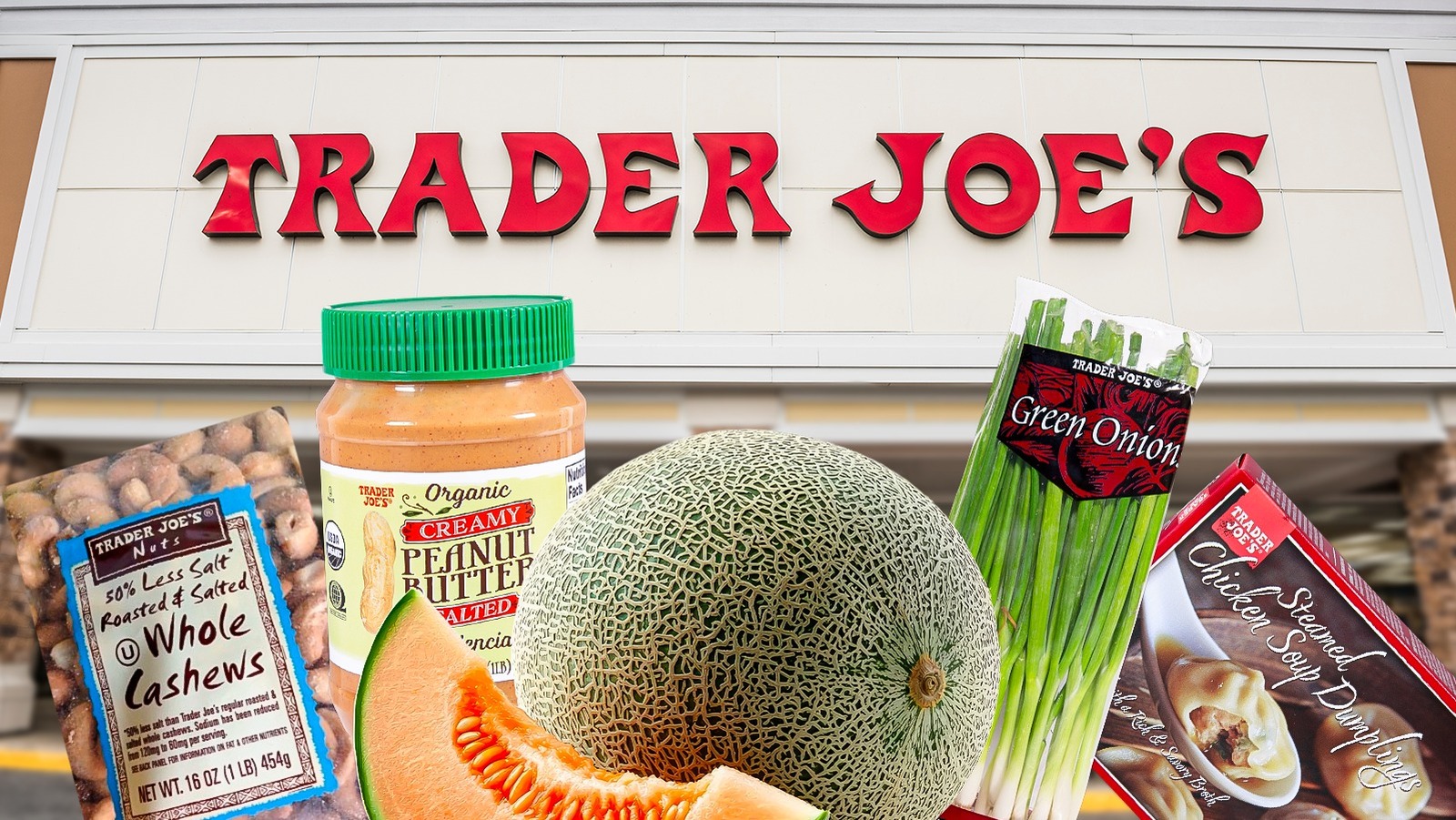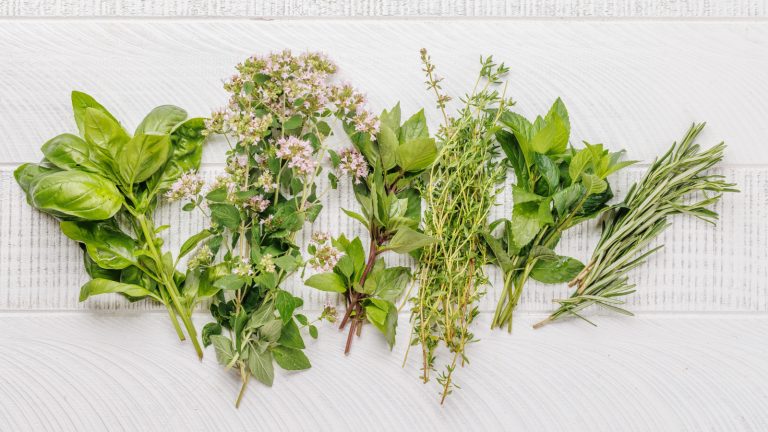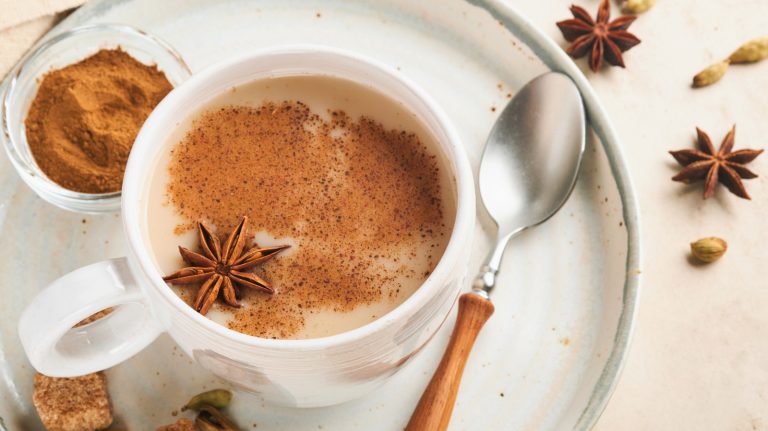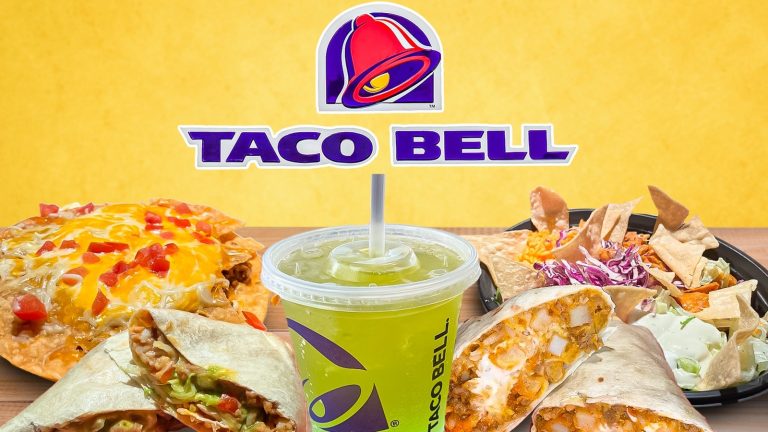Trader Joe’s is a popular grocery store chain that offers products you’re unlikely to find at other supermarkets. Its selection of high-quality, private-label goods, often sourced from other countries, makes it stand out from the rest. You can find cheese, chocolate, olive oil, and snacks inspired by the cuisines of Italy, Japan, Spain, India, Mexico, France, and more. The shopping experience itself is unique as well, with staff sporting Hawaiian shirts, creating an atmosphere that feels laid back and casual than the more traditional customer-employee dynamic. But even a store like Trader Joe’s isn’t immune to the occasional chaos of food recalls.
Though there isn’t a full historical list of past recalls from Trader Joe’s, some have grabbed headlines over the years due to widespread distribution or volume of product. From fresh produce to poultry and foodborne pathogens to foreign material, Trader Joe’s has had its experience of pulling products from the shelves. For the last dozen years, there have been a handful of doozies that top the list of food recalls in Trader Joe’s history. From multi-state outbreaks to death, foodborne illness is no joke. Guard your appetite.
Valencia Creamy Salted Peanut Butter (2012)
In 2012, Trader Joe’s recalled its Valencia Creamy Salted Peanut Butter after it was linked to a multi-state salmonella outbreak that sickened 42 people. The contamination traced back to Sunland Inc., a New Mexico based supplier, where inspectors found salmonella at the facility, as well as from opened jars of peanut butter from customers’ homes. As a result, Trader Joe’s immediately pulled all of the 16-ounce plastic jars from its shelves nationwide. Sunland later expanded the recall to include other nut butters produced at its plant. The outbreak stretched across 20 states.
More than half of the reported cases involved children and 10 individuals were hospitalized. Fortunately, there were no deaths. Investigation into the matter found a mess at the facility with subpar food safety practices, triggering more than 300 products to be recalled. Inspections at the Sunland Inc. manufacturing plants uncovered that peanut butter testing positive for salmonella was allowed to be distributed by the company, exposing significant safety failures.
Chicken and turkey deli salads (2017)
More than 65,000 pounds of chicken and turkey deli salad were recalled in 2017 after customers found glass and hard silica pieces in their ready-made salad kits. The contamination spanned multiple locations and included various styles, all packaged in clear plastic containers. Produced by Green Cuisine, a California supplier, the affected salad products included Trader Joe’s White Meat Chicken Salad (with veggies), Trader Joe’s Curried White Chicken Deli Salad (with nuts and honey), and Trader Joe’s Turkey Cranberry Apple Salad (with fruit and nuts).
Following customer complaints, Green Cuisine initiated a food safety inspection, which then prompted a cautionary product recall across 12 states. Though it was labeled as a class I risk — indicating a medium or high risk with the reasonable probability the product will cause problems — there were no reported injuries or illnesses. Trader Joe’s immediately pulled products from shelves and advised customers to toss or return the affected salad kits.
Ready-to-eat poultry products (2018)
In 2018, nearly 800,000 pounds of ready-to-eat meat and poultry products were recalled due to concerns of listeria and salmonella contamination. Contrary to how it might sound, the recall stemmed from onions in the ingredients and not the meat or poultry itself. Bakkavor Foods USA, Inc., a company with facilities in California, North Carolina, and Pennsylvania, voluntarily withdrew the potentially affected products after its onion supplier, McCain Foods USA, alerted them to the possibility of foodborne pathogens in its vegetables.
As a direct result of the onion recall, salads and wraps from Trader Joe’s were taken off of shelves from a number of stores. Included in the recall was Trader Joe’s Carnitas with Salsa Verde Burrito, which was sold at all Trader Joe’s stores. Additionally, Trader Jose’s Mexicali Inspired Salad was pulled from stores in eight states and Trader Joe’s BBQ Flavored Chicken Salad and Trader Joe’s Field Fresh Chopped Salad with Grilled Chicken Breast were recalled from stores in six states. No illnesses were reported and customers were urged to throw away the products or return them for a full refund.
Chile Lime Chicken Burgers (2021)
Almost 98,000 pounds of raw chicken patties were recalled in 2021 due to extraneous materials that posed a potential choking hazard. This recall was sparked by customer complaints about finding bone fragments in their chicken burgers. As a result, Innovative Solutions, Inc. called back an enormous amount of chicken products, including Trader Joe’s Chile Lime Chicken Burgers and an unnamed brand of spinach feta chicken sliders. Though there were no reported injuries from eating these items, customers were encouraged to discard the product or return it to the store, given the serious risk of choking or harm.
No one wants to sink their teeth into a burger — meant to be easy on the bite — only to hit something too hard to chew. The chance for a cracked tooth shouldn’t come with your lunch or dinner. Next time you’re craving a poultry sandwich, think about whipping up your own chicken burgers. Concerned they’ll turn out too dry? No worries — we have a simple seasoning solution to keep them juicy.
Cantaloupe (2023)
In 2023, Sofia Produce, an Arizona-based company doing business as Trufresh, and California-based Pacific Trellis Fruit doing business as Dulcinea of Fresno, recalled all cardboard containers of fresh cantaloupe. The FDA and CDC worked together to trace the source of a salmonella outbreak tied to Malichita and Ruby brand whole cantaloupes, causing a cascade of recalls from multiple stores involving various products that contained the fruit. Cantaloupe goes by many names depending on the type, but regardless of what you call it, you want it to be safe to eat.
Stores like Aldi, Stop & Shop, Sprouts, Kroger, and Trader Joe’s were affected across at least 11 states, but officials warned more states were likely involved. Trader Joe’s pulled fresh-cut fruit products packed in clear square or round plastic containers, like chunks, medleys, mixes, and trays. Though this recall was triggered by an investigation into a salmonella outbreak, the products from Trade Joe’s were never linked to any reported illness. Customers were urged, however, to toss the potentially affected products out of caution.
Trader Joe’s Fully Cooked Falafel (2023)
Falafel, a popular Mediterranean and Middle Eastern street food, is a crispy, deep-fried ball of chickpeas, fava beans, or lentils, which are ground or mashed and mixed with seasonings. The one ingredient that doesn’t belong in a falafel is the reason for a 2023 recall of Trader Joe’s Fully Cooked Falafel — rocks. The vendor alerted the supermarket to the possibility of a pebble problem as a result of a manufacturing processing issue. Out of caution, Trader Joe’s destroyed all of its premade falafel balls and urged customers to do the same or return for a refund.
The fully cooked, but frozen, falafel — ready to heat and eat — was sold to 34 states. This recall came on the heels of three other recalls that included broccoli and two different types of cookies, the latter also posing a rocky hazard. How do rocks get into food? It’s more common than you may think as it happens frequently when ingredients such as fruit, nuts, and legumes are harvested from the field. Sometimes, pebbles get harvested as well.
Unexpected Broccoli Cheddar Soup (2023)
Around the same time Trader Joe’s recalled its falafel balls, it also had to recall its Unexpected Broccoli Cheddar Soup for a very unexpected reason — insects. Not the surprise most people are looking for when they take a spoonful of cheesy soup. As it is, Trader Joe’s Unexpected Cheddar Cheese is a customer favorite that has earned its spot in Trader Joe’s product hall of fame. But insects aren’t supposed to be the unexpected part — the unexpected part is the cheese looks and tastes like aged cheddar but surprisingly becomes reminiscent of aged Parmesan.
Winter Gardens Quality Foods initiated the recall of almost 11,000 cases of broccoli cheddar soup when it was discovered insects got into the frozen broccoli. The soup, which was packaged in a film-sealed plastic container, was distributed nationwide to seven states. It was labeled a class III risk, indicating illness or harm is unlikely, and there were no reported issues with the cheesy vegetable soup.
Trader Joe’s Steamed Chicken Soup Dumplings (2024)
In 2024, Trader Joe’s pulled back its Steamed Chicken Soup Dumplings after CJ Foods Manufacturing Beaumont Corporation, a California-based company, announced the dumplings may be contaminated with foreign material. This was as a result of customers complaining about hard plastic pieces in the dumplings. Almost 62,000 pounds of the chicken product were recalled because there was the possibility of plastic from a permanent marker included — clearly not a normal part of the ingredients. The product was shipped nationwide to all Trader Joe’s locations in 6-ounce boxes with plastic trays.
This recall was classified as class I due to the high risk of injury, but there were no confirmed reports of anyone getting sick or harmed from the chicken dumplings. With all the different types of dumplings around the world, it might be safer for you to make some at home. iI doesn’t have to be a chicken filling either — there’s also beef, pork, shrimp, or even vegetables. Check out our steamed beef dumpling recipe.
Trade Joe’s 50% Less Salt Roasted & Salted Whole Cashews (2024)
Trader Joe’s is fairly known for its wide selection of nuts, offering everything from cashews to pistachios to almonds to pecans (and then some). Whether raw, dry roasted, smoked, or seasoned, Trader Joe’s nuts are quite popular. In 2024, the company had to recall its 50% Less Salt Roasted and Salted Whole Cashews over concerns for potential salmonella contamination. The at-risk cashew nuts were distributed to all Trader Joe’s locations in 16 states, but no illnesses were reported in connection with the buttery tasting, but less salty, nuts.
The recall was prompted by the wholesaler, Wenders LLC from California. After the FDA discovered one lot of cashews tested positive for salmonella through routine testing during import from India and Vietnam, all lots of cashews were pulled out of caution. Per usual, customers were told to discard any cashews with specific lot numbers or return the bags to the store for a full refund.
Trader Joe’s Green Onions (2024)
Green onions are a welcome complement for a number of dishes but no one wants a side of salmonella with their soup or stew. In 2024, the supplier for Trader Joe’s fresh, packaged green onions alerted the company about the potential for the vegetable to be contaminated with salmonella. Trader Joe’s immediately pulled the green stuff from its shelves in 29 states. The recall happened because a sample of the product was found to have salmonella present, but there were no reports of illness or harm.
It wasn’t just the Trader Joe’s brand of fresh, packaged green onions that were affected by this recall, however. The green onions sold by Church Brothers Farms also included two other brands: Church Brothers and Imperial Fresh. A total of 1,271 cases of green onions were recalled but illnesses were never reported.
BrucePac meat and poultry (2024)
One of the biggest food recalls in Trader Joe’s history is also one of the biggest recalls in Aldi history. As a matter of fact, it’s one of the largest recalls in many retailers’ histories. The BrucePac meat and poultry recall of 2024 was one for the record books. A whopping 12 million pounds of meat were recalled from retailers, restaurants, and even schools due to the risk of listeria. The ready-to-eat poultry was used for a wide variety of brands, processed products, and frozen foods.
In relation to the BrucePac recall, Trader Joe’s pulled back a number of products due to the risk of contamination — products like wraps, salads, and complete dishes. Stores nationwide were affected, depending on the specific product they carried. For instance, chicken chow mein was recalled from 36 states while salad with BBQ flavored chicken was removed from seven states. The contamination problem was found during routine testing that showed positive results for listeria monocytogenes, but there have been no confirmed reports of illness.
Rizo-Lopez Foods dairy (2024)
In 2024, following a multi-year, multi-state outbreak of listeria, the FDA and CDC determined Rizo-Lopez Foods, Inc. to be a possible source. As a result, Rizo-Lopez Foods, Inc. recalled its dairy products that were distributed to various suppliers, as well as retail deli counters. Products included various brands of cheese, sour cream, and yogurt. Listeria infections were linked to queso fresco and cotija cheeses. A number of retailers were affected, including HEB, Safeway, and Sprouts. As a result of this widespread cheese recall, Trader Joe’s pulled a handful of brands and products from its shelves.
This nationwide outbreak affected more than 100 products across multiple brands. Among the mix, Trader Joe’s recalled its Chicken Enchiladas Verde, Cilantro Salad Dressing, Elote Chopped Salad Kit, and Southwest Salad. All of these products contain cotija cheese. Though there were an overall 26 confirmed cases with 23 hospitalizations and two deaths, Trader Joe’s never had a confirmed case as a result of its recalled products.
Grimmway Farms organic carrots (2024)
2024 was a busy year for Trader Joe’s and food recalls. Initiated by Grimmway Farms, a large recall began for organic whole and baby carrots because of potential E. coli contamination. Shortly thereafter, the company expanded the recall for additional package sizes. Carrots were sent to multiple retail distribution centers across the states, as well as Puerto Rico, and Canada. Among all the brands affected by this risk, Trader Joe’s Organic Whole Carrots and Organic Cut and Peeled Carrots had to be taken from stores. Other brands included Good & Gather, GreenWise, and Nature’s Promise.
In an investigation into the E. coli infections, the FDA and CDC linked the carrots from Grimmway Farms to a multi-state outbreak of the foodborne pathogen. A total of 48 illnesses were reported across 19 states. Twenty people were confirmed hospitalized and there was one reported death.
Infinite Herbs fresh basil (2024)
There’s something about fresh organic basil that brightens up the senses. It also helps to create one of the best sauces or dips there is: fresh pesto. But a food recall can dampen that enthusiasm for the green sauce. In 2024, Trader Joe’s had to take back Infinite Herbs Fresh Basil over concerns of salmonella contamination. This leafy product was sold in stores across 31 states and Trader Joe’s urged its customers to get rid of the potentially tainted herb or return it for a full refund. This was as a result of Infinite Herbs, LLC, a Florida-based company, initiating the recall.
Infinite Herbs, LLC was also connected to another brand that was affected — Melissa’s — a brand sold in Dierberg’s stores. The basil recall ended up being part of a multi-state salmonella outbreak. A total of 36 cases of illness were confirmed in 14 states, with four hospitalizations. There were no deaths reported.
Tri-Union Seafoods canned tuna (2025)
Botulism is one of the biggest threats to canning foods because it’s a serious illness, though it’s rare. And if food isn’t canned correctly, the risk for botulism goes up. If there’s a leak in a seal, foodborne pathogens like listeria monocytogenes, salmonella, and clostridium botulinum can contaminate the food and thrive, increasing risk of serious illness. In February 2025, Tri-Union Seafoods recalled a number of tuna cans distributed to multiple retailers, including HEB and Trader Joe’s, due to concerns of a compromised seal on the can lids. The recall was voluntary after a manufacturing defect was found, threatening the integrity of the product.
As a result of this recall, Trader Joe’s pulled five different types of canned tuna from its shelves, including yellowfin and albacore. This affected all stores across 19 states, though the particular tuna sold varied by state. No illnesses or issues have been reported to date but lot numbers include expiration dates stretching into 2028. Customers are advised to check their pantries.





